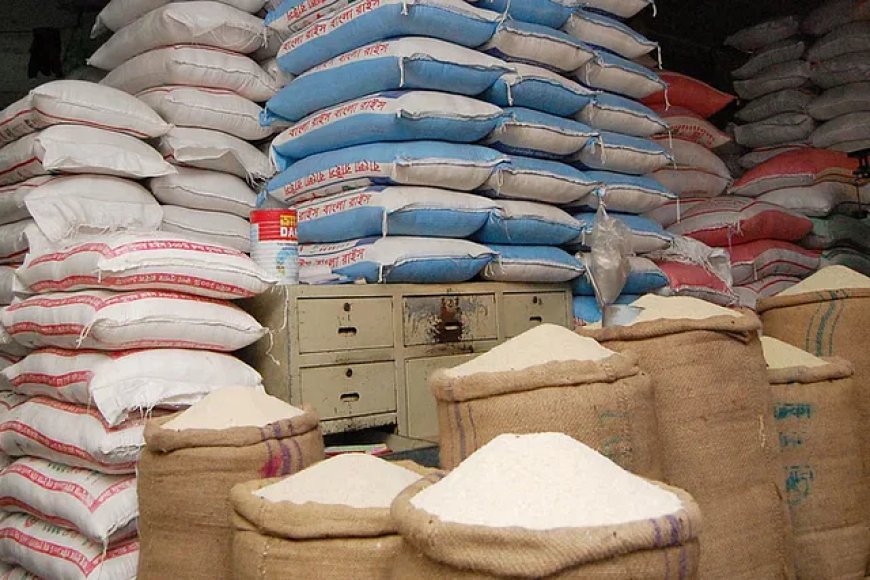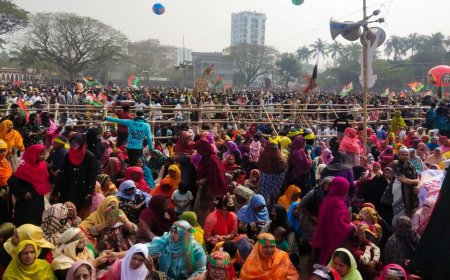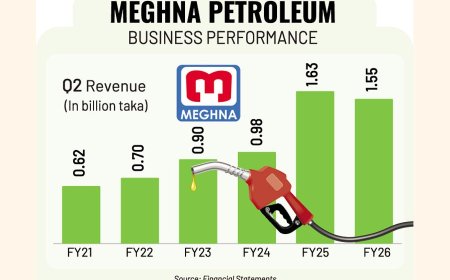The price of fine rice has exceeded Tk 80 per kilogram, while coarse rice is priced at Tk 55 per kilogram
The price of fine rice has exceeded Tk 80 per kilogram, while coarse rice is priced at Tk 55 per kilogram

Middle-class individuals are accustomed to consuming fine rice, mainly varieties like miniket and nazirshail, but these are now being sold for Tk 80-90 per kg in Karwan Bazar, Dhaka.
In the past month, the price of fine rice has risen by Tk 5-8 per kg. According to the Trading Corporation of Bangladesh (TCB), on January 1, 2022, fine rice prices ranged from Tk 45 to Tk 70 per kg, but today they range from Tk 70 to Tk 84 per kg.
Miniket rice from popular brands like Rashid, Diamond, Sagor, and Mojammel is now priced above Tk 80 per kg, while packaged rice is being sold for around Tk 90. As a result, people from middle-income households typically choose rice priced at around Tk 80 per kg.
The price of coarse rice has also risen recently, from Tk 30-35 per kg on January 1, 2020, to Tk 54-58 per kg today, as reported by the TCB. Coarse rice is now being sold for over Tk 55 per kg at markets such as Shewrapara, Mohammadpur Krishi Market, and Town Hall Market in the capital. High-quality coarse rice costs Tk 58-60 per kg, while medium-quality coarse rice is priced at Tk 60-66 per kg. The government is attempting to stabilize the price of coarse rice through the subsidized Open Market Sale (OMS) program under the Directorate General of Food.
Additionally, poor people benefit from rice aid through the Food Friendly Programme (FFP) and ration schemes. However, not much is being done to lower the price of rice consumed by middle- and lower-income individuals, who are dependent on the market for their food and do not benefit from the TCB’s family card.
Md Shamsul Islam, a private service holder from Rupnagar, Mirpur, shared with Prothom Alo that he buys 35 kg of Rashid brand miniket rice each month, costing around Tk 2,500. Due to the recent price hike, he spent an additional Tk 280 this month. He stated, "We are already struggling to afford other essentials because of price hikes, and now rice prices have also increased."
Other families reported that they buy an average of 25 kg of rice per month and now spend an extra Tk 125 on rice. One private service holder said, “An additional Tk 125 might not seem like much, but when the prices of other essentials rise, it puts a strain on our budget. In other countries, basic food prices remain low, but in Bangladesh, people are struggling to afford them.”
Large rice mills dominate the market for middle-income consumers, as they control the supply of popular rice brands. Mills attribute rising rice prices to an increase in paddy prices and other operational costs.
Zihaduzzaman, the owner of Golden Auto Rice Mill in Kushtia, explained to Prothom Alo that previous government interventions to control rice prices had long-term consequences. Furthermore, large corporate firms have purchased most of the paddy this year, limiting the supply for millers and driving up prices.
Paddy prices are about Tk 10 higher than last year, which has contributed to the surge in rice prices.
According to the Department of Agricultural Marketing, the wholesale price of medium boro paddy increased slightly from Tk 27 per kg in 2020 to just over Tk 30 in 2023. However, rice prices increased disproportionately—fine rice prices rose by 42%, much higher than the 12% increase in paddy prices.
Market analysts believe that large companies have entered the rice market and, with ample financial resources, are able to control the market by stockpiling large amounts of paddy. These firms can easily borrow from banks, but if rice were imported, they would face competition, which would affect their market control.
A 2019 survey by the Bangladesh Institute of Development Studies (BIDS), commissioned by the Bangladesh Competition Commission, found that 50 major rice mills dominate the market from paddy stocking to rice processing.
The import of rice has been hindered due to a lack of timely action. Despite a drop in rice prices in Thailand and Vietnam, traders in Bangladesh have been reluctant to import rice, as the price of the US dollar has risen to Tk 123, making the import cost approximately Tk 62 per kg of rice. When factoring in shipping, tariffs, taxes, and retailer profits, importing rice becomes less feasible.
Rice imports have been restricted, with occasional permission granted based on demand. The government lowered taxes and tariffs from 62.5% to 3% in October, but the rise in imports has been minimal.
A government official, wishing to remain anonymous, told Prothom Alo that when large rice mill owners are unable to import rice, they take advantage of the situation by raising prices at will. The official questioned whether the food ministry is adequately scrutinizing the expenditures, selling prices, and stock amounts of these large businesses.
What's Your Reaction?




















































































